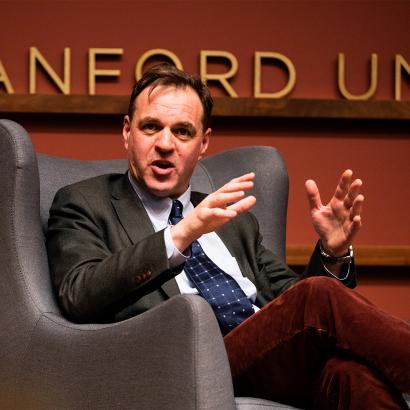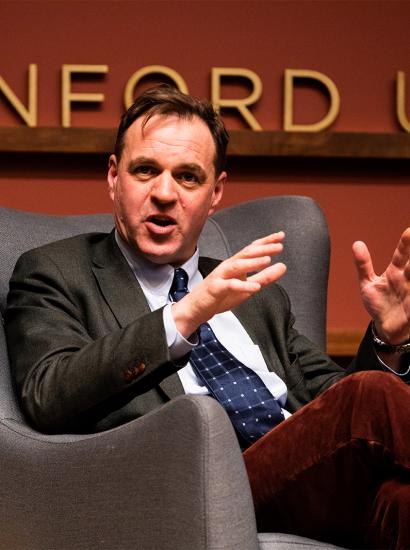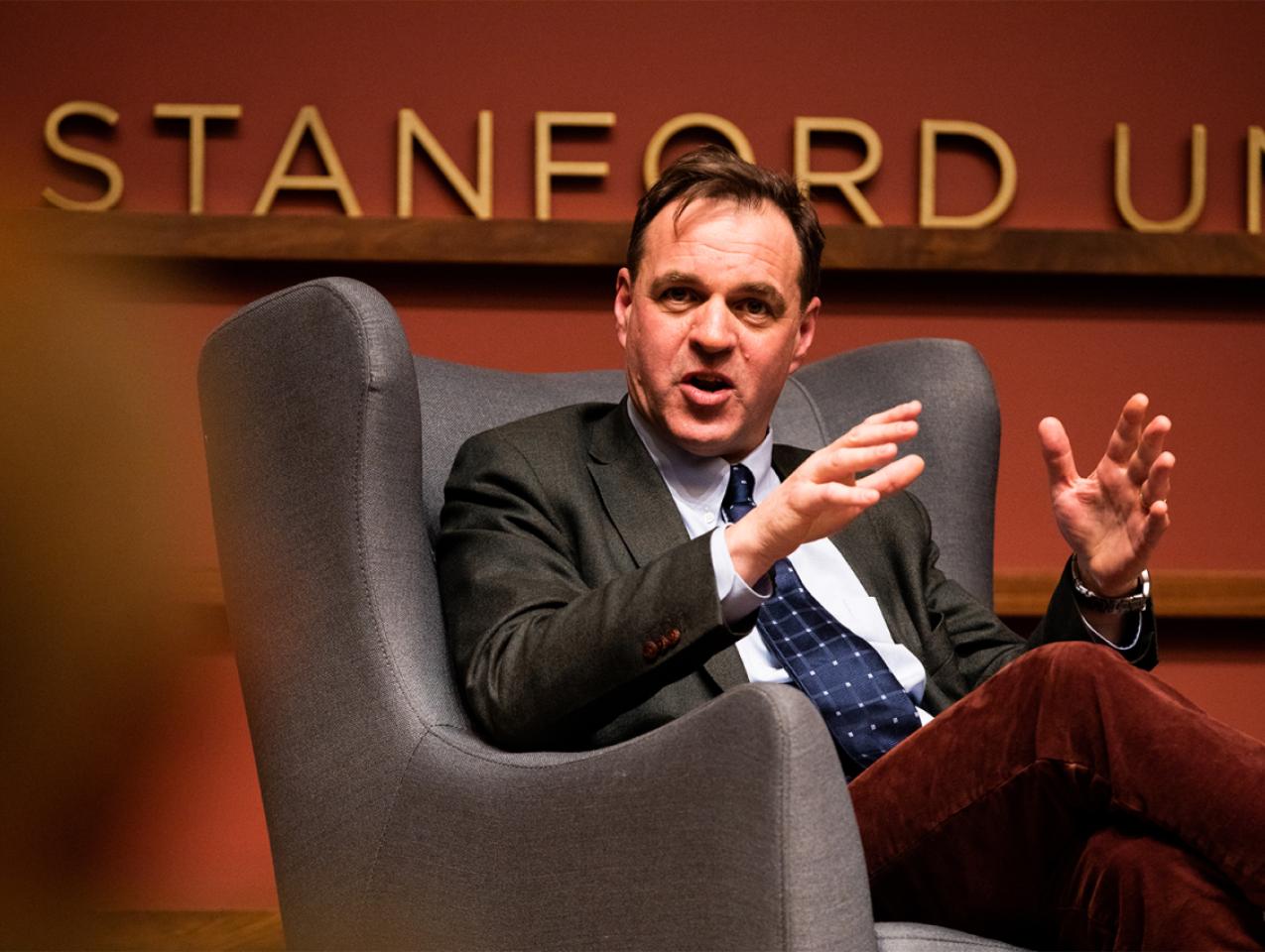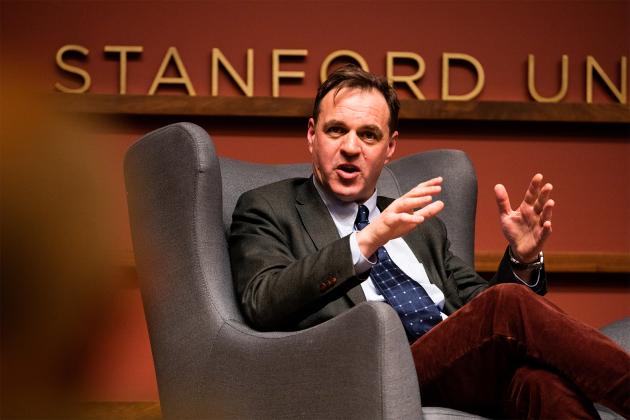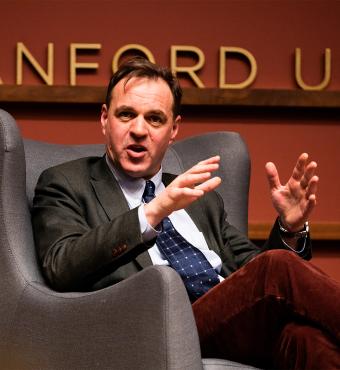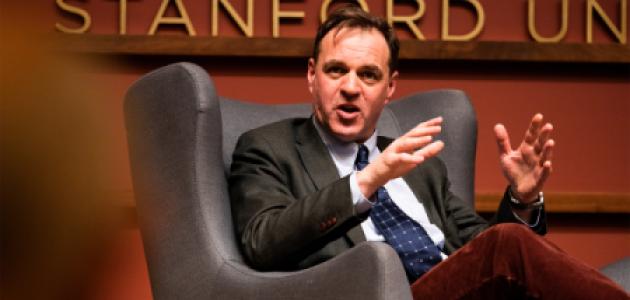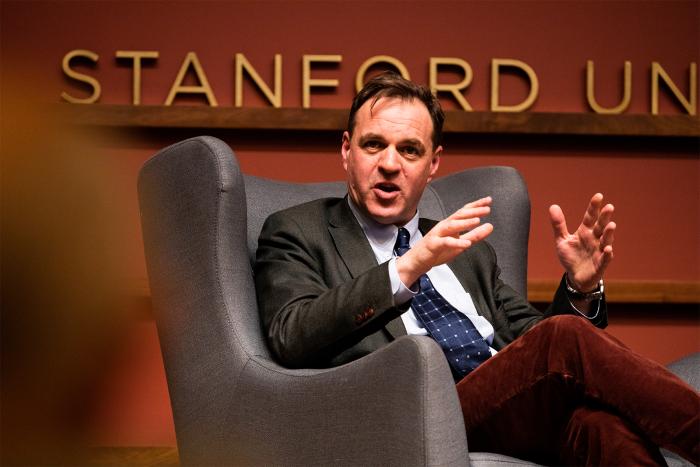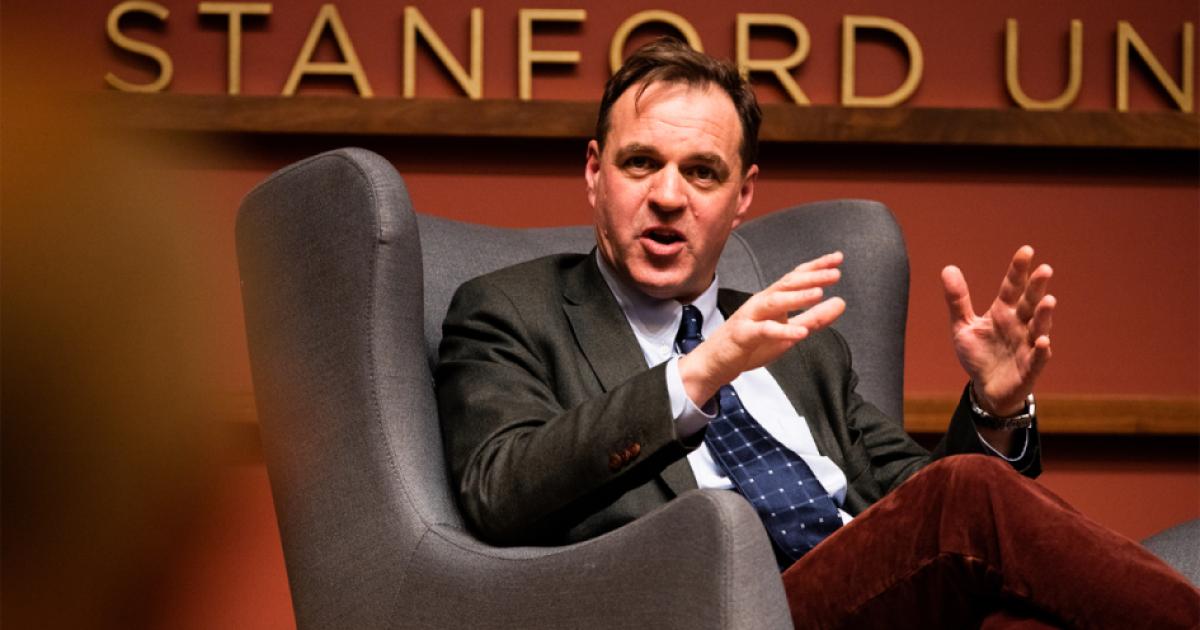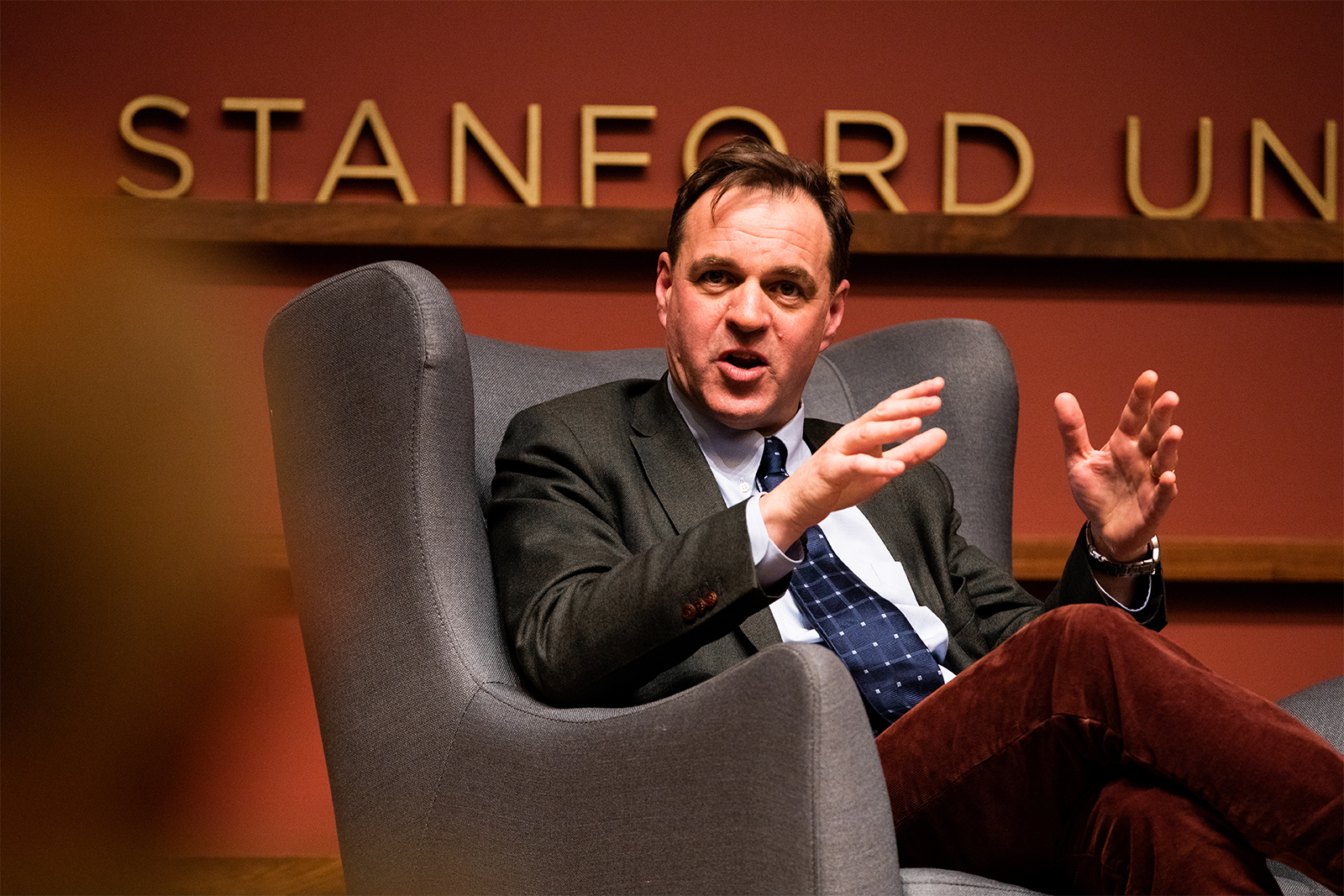
The Hoover Institution’s Hauck Auditorium was the venue Monday, March 2, for the world premiere of the new PBS documentary Niall Ferguson’s Networld, based on the Milbank Senior Fellow’s best-selling book The Square and the Tower.
Written and hosted by Ferguson, the three-part series explores the history of social networks—beginning in the Protestant reformation and continuing to today’s intersections of social media and technology—and the spread of cultural movements and ideas.
The premiere featured a showing of the third episode, about the threats and vulnerabilities to modern society in a networked world, specifically information operations originating from the Russian Federation, the People’s Republic of China, and radical Islamist groups such as ISIS. The screening was followed by a panel discussion moderated by Murdoch Distinguished Policy Fellow Peter Robinson, which included Ferguson and Hoover Fellows Cole Bunzel, an Arabist and expert in Islamic movements, and Jacquelyn Schneider, an expert on the intersections of technology, national security, and political psychology.
Robinson began the discussion by asking Ferguson what the recent outbreak of the coronavirus reveals about an increasingly networked world. Ferguson answered that the more integrated societies become, the more they are susceptible to being exposed to the contagion of one another’s movements and actions. This manifests not only in the realm of public health but also in the sphere of technology, where countries daily sustain cyberattacks from adversaries, and in the arena of ideas, where information operations threaten sovereignty and influence the outcomes of democratic elections.
Ferguson went on to discuss how China’s accumulation of wealth over the past three decades and its technological gains have quietly brought it into a new Cold War with the United States and its allies.
“In a very fundamental way this is a far more formidable challenge than the Soviet Union ever was,” Ferguson said.
Schneider raised concerns about the United States’ technological deficit with China. She explained that tech giants such as Google are more cautious innovators than their Chinese counterparts due to expectations of privacy in America and a legal tradition that historically defers to civil liberties. This places the United States at a disadvantage in the technological arms race, especially in the rapidly growing sector of artificial intelligence.
Schneider admitted that the United States needs to do more to make up lost ground in the tech sector but said she is willing to cede battles over big-data gathering such as facial recognition, which China uses for control over its population.
Bunzel explained how social networks have brought radical Islam into the open from a shroud of secrecy. As ISIS gained a formidable presence in Iraq and Syria nearly a decade ago, purveyors of Islamic radicalism migrated from password-protected message forums to public platforms such as Twitter and Facebook.
He said that while adherents to Islamic radicalism are normally averse to technology, this is not so in warfare, where they have historically proved great ability in adapting and breaking new ground. As an example, Bunzel raised the tactic of suicide bombing, which had not been used until the late twentieth century.
Ferguson concluded the conversation by offering a historical example that illustrates the need for a wake-up call in America to deal with threats in an increasingly networked world. He explained that in the late 1960s, there was a genuine fear among America’s leadership that the United States might lose the Cold War. And it was precisely this fear that sharpened minds to answer this challenge, and ultimately claim victory over the Soviet Union by the end of the 1980s.
“You don’t get to 1989 without a significant national effort and very clear sight of recognition that there is a serious challenge that we are in no way predestined to win,” Ferguson said.
PBS will air Niall Ferguson’s Networld in its entirety on Tuesday, March 17, except in the San Francisco Bay Area, where it will air on March 18. Click here to check local listings.
Click here to purchase a DVD copy.







